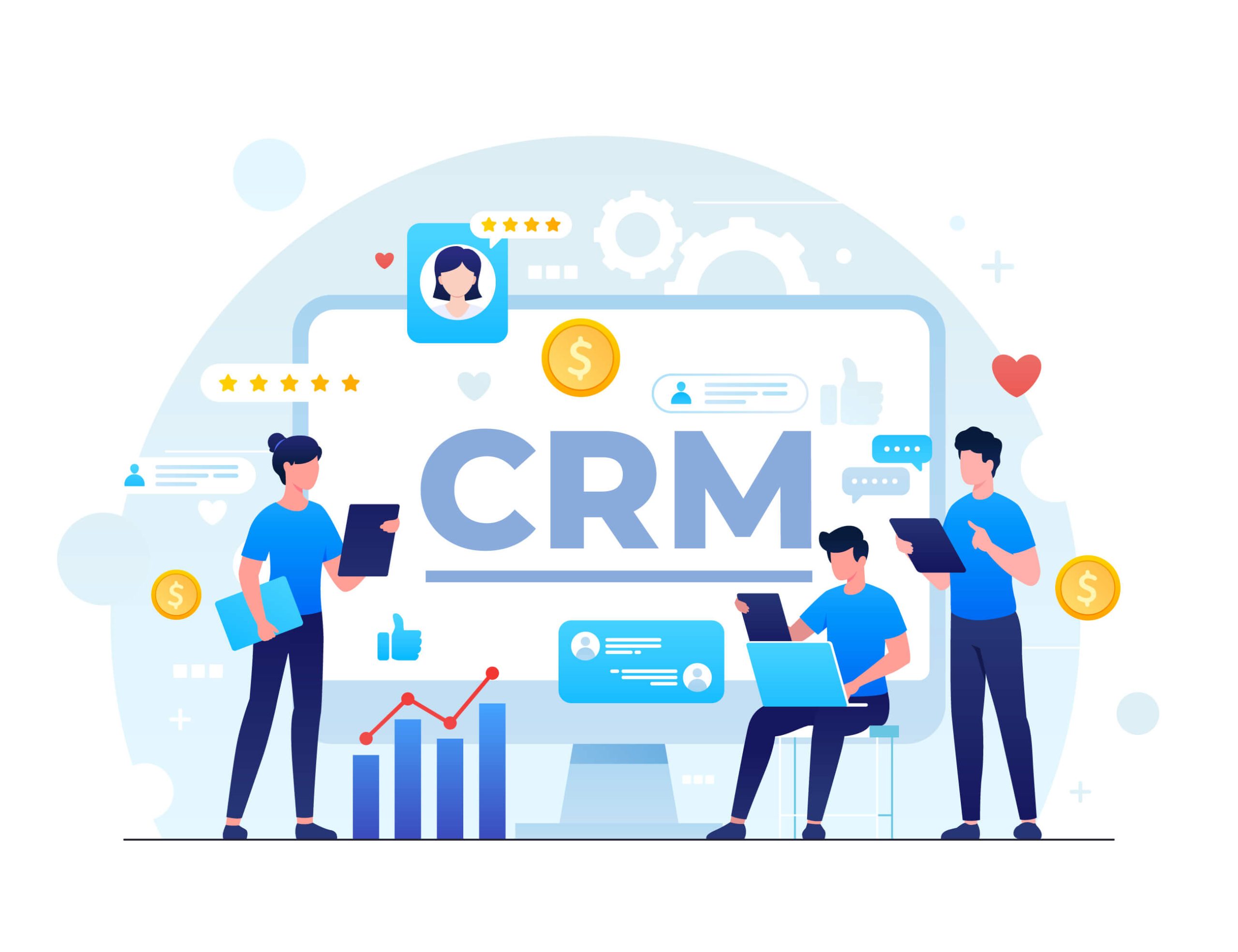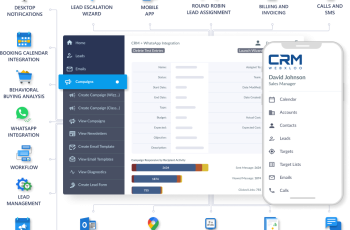What Is CRM in Automotive? Understanding the Basics

In the complex and competitive world of automotive retail, a dealership’s most valuable asset is not the shiny inventory on the lot, but its customer relationships. In an era where a single customer journey can involve a website visit, a phone call, a live chat, multiple emails, and a showroom visit, managing these intricate relationships effectively is the key to sustainable success. Attempting to track these interactions with spreadsheets, sticky notes, or memory alone is a recipe for missed opportunities and frustrated customers. This is why the single most important software investment a modern dealership can make is in a Customer Relationship Management (CRM) system.
But what exactly is a CRM in automotive? For many, the term may sound like technical jargon, but its concept and purpose are fundamental to business growth. This article will demystify the automotive CRM, providing a detailed breakdown of what it is, its core functions, and why it has become the indispensable central hub for high-performing dealerships everywhere.
Defining CRM: More Than Just a Digital Rolodex
First, let’s establish what a CRM is not. It is not simply a digital address book or a list of contacts.
A Customer Relationship Management (CRM) system is a powerful combination of strategy and technology designed to manage and analyze every customer interaction and piece of data throughout their entire lifecycle. Its goal is to improve business relationships, assist in customer retention, and drive sales growth.
In the dealership context, think of the CRM as the central nervous system of your entire sales and service operation. It is the single source of truth for every lead, every prospect, and every customer, capturing their history, tracking their journey, and guiding your team’s next steps to provide a seamless and personalized experience.
The Core Functions of an Automotive CRM
A robust CRM designed specifically for the automotive industry goes far beyond basic contact management. It provides a suite of powerful tools that streamline processes and empower your team.
1. Centralized Lead Management
Your dealership receives leads from dozens of sources. The CRM’s first job is to catch them all.
- Complete Capture: It automatically funnels leads from your dealership website (e.g., “Contact Us” forms, credit applications), third-party listing sites, social media platforms, live chat inquiries, and phone systems into one organized, manageable dashboard.
- Intelligent Distribution: Upon arrival, leads can be automatically routed to the correct person or department based on predefined rules. For example, all new internet leads might go directly to your Business Development Center (BDC) for immediate qualification.
- Lead Prioritization: Advanced CRMs can help score leads based on their source or the actions they’ve taken, allowing your team to focus on the hottest, most engaged prospects first.
2. Sales Pipeline and Opportunity Management
A CRM provides a clear, visual representation of your entire sales pipeline, allowing you to see where every potential deal stands.
- Visualizing the Funnel: Track customers as they move through critical stages: from a “New Lead” to “Contacted,” “Appointment Set,” “Showroom Visit,” “Negotiation,” and finally, “Vehicle Sold.”
- Detailed Deal Tracking: Within each opportunity, you can manage crucial details like the specific vehicle of interest, trade-in information, financing status, and expected closing date. This provides managers with an accurate sales forecast.
3. 360-Degree Customer Communication & Activity Tracking
This is the heart of relationship management. The CRM creates a comprehensive, chronological record of every single touchpoint.
- Complete History: Every phone call, email sent and received, text message, and showroom visit is logged in the customer’s profile. Salespeople can add detailed notes from their conversations.
- Seamless Customer Experience: This 360-degree view means any authorized staff member can instantly understand a customer’s history. If a customer’s primary salesperson is unavailable, another team member can step in, review the notes, and continue the conversation without missing a beat. This level of service builds immense trust.
4. Powerful Automation & Task Management
The most significant drain on a sales team’s time is manual administrative work and trying to remember who to follow up with next. The CRM automates this.
- Automated Follow-Up Plans: The system can automatically assign follow-up tasks based on dealership processes. For example, if a lead hasn’t been reached after two hours, a new task is created. If a customer said they’d be ready in 30 days, a task is automatically scheduled for that future date. No lead is ever forgotten.
- Daily Work Plans: The CRM can generate a clear, prioritized “to-do list” for every salesperson each day, telling them exactly who they need to call, email, or follow up with.
- Triggered Communications: It can send automated but personalized communications, such as an email thanking a customer for their visit or a text message reminding them of their upcoming appointment.
5. Actionable Reporting & Analytics
“You can’t improve what you don’t measure.” A CRM provides deep insights into your dealership’s performance.
- Managerial Oversight: Dashboards provide sales managers with a real-time view of team activity, closing rates, and pipeline health.
- Marketing ROI: By tracking where leads come from, the CRM can clearly show which marketing channels (e.g., your website’s SEO, a specific ad campaign, a third-party site) are delivering the best return on investment.
- Individual Accountability: It tracks key performance indicators (KPIs) for each salesperson, such as calls made, appointments set, and deals closed, providing a clear basis for performance reviews and coaching.
How a CRM Benefits Every Department in Your Dealership
While often seen as a sales tool, the positive impact of a powerful CRM in automotive is felt across the entire dealership.
- For the Sales Team: It provides organization, eliminates guesswork, ensures consistent follow-up, and gives them mobile access to crucial customer information while on the lot. This leads to more closed deals and higher commissions.
- For the BDC: The CRM is the BDC’s command center. It’s the essential tool they use to manage all inbound and outbound communications, set and track appointments, and nurture long-term prospects.
- For Sales Managers: It offers unparalleled visibility into team performance, enables accurate forecasting, and provides the data needed to effectively coach and train salespeople.
- For the Service Department: By accessing a customer’s sales and communication history, service advisors can provide a more personalized experience (“Welcome back, Mrs. Smith! How are you enjoying the F-150 you bought last year?”). It also allows for logging service interactions, building a complete vehicle lifecycle history.
- For the Marketing Team: The rich data within the CRM allows marketing to create highly targeted campaigns. For example, they can send a special trade-in offer to customers who bought a car 3-4 years ago.
Autoxloo’s Vision for Automotive CRM
A generic, one-size-fits-all CRM cannot grasp the unique and complex workflows of a car dealership. At Autoxloo, we develop CRM solutions that are built from the ground up specifically for the automotive industry.
Our philosophy is that a CRM must be:
- Intuitive: Easy for salespeople and managers to learn and use daily.
- Mobile-First: Fully accessible on smartphones and tablets, so your team is empowered on the lot, not chained to a desk.
- Powerfully Automated: To handle repetitive tasks and allow your team to focus on building relationships and selling.
- Seamlessly Integrated: Designed to work in perfect harmony with other core dealership systems, like inventory management and marketing platforms, creating a truly unified digital ecosystem.
Conclusion: The Foundation of Modern Dealership Success
In the competitive landscape of 2025, the dealerships that thrive will be those that master the art and science of customer relationship management. A powerful CRM in automotive is no longer a luxury; it is the foundational technology that enables streamlined processes, data-driven decisions, superior customer experiences, and sustainable growth. It provides the structure for accountability, the tools for efficiency, and the insight for strategy. Operating without one is like trying to navigate a busy highway blindfolded—you might move forward for a while, but you’re missing the crucial information needed to reach your destination safely and successfully.



 Search ads
Search ads Mobile ads
Mobile ads